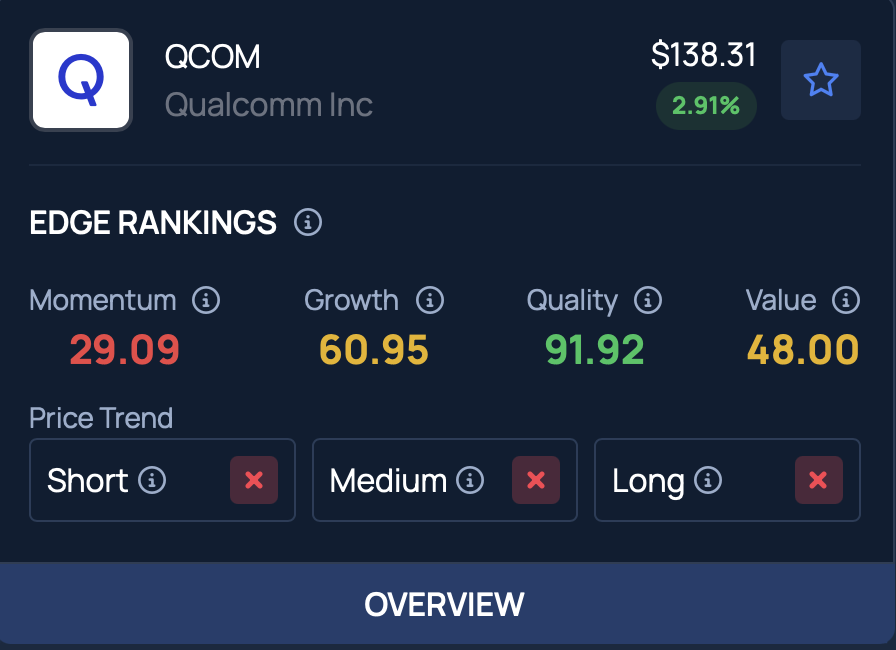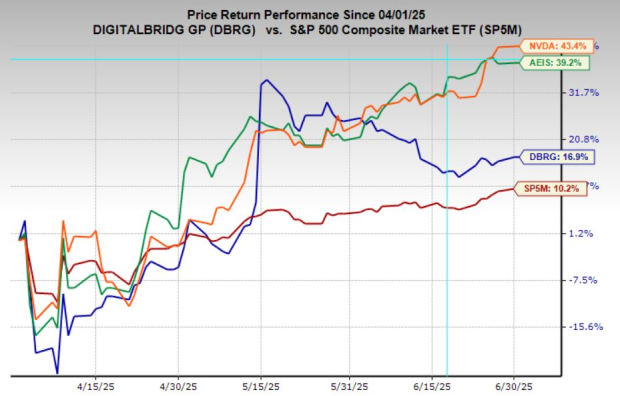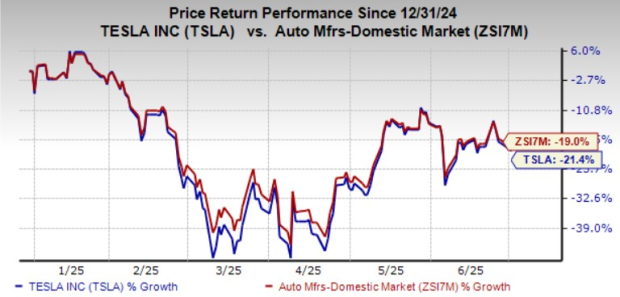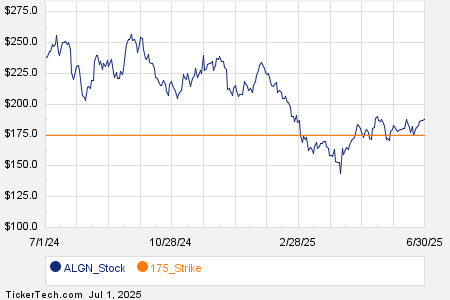China’s New Tariff Rule Reshapes Semiconductor Landscape for U.S. Firms
On Friday, the General Administration of Customs in China introduced a new regulation that specifies the country of origin for semiconductor products. This designation will now depend on where the wafer fabrication occurs, rather than where the chips are designed, developed, or packaged.
Implications of the New Rule:
This change impacts U.S. semiconductor companies significantly. Chips designed by firms such as Nvidia Corporation NVDA, Advanced Micro Devices AMD, and Qualcomm Inc. QCOM but manufactured by Taiwanese foundries like Taiwan Semiconductor Manufacturing Co. Ltd. TSM and United Microelectronics Corporation UMC will now be exempt from China’s 125% retaliatory tariffs on U.S. imports, as reported by Tom’s Hardware.
In contrast, U.S.-based chip manufacturers, including Intel Corporation INTC, GlobalFoundries GFS, and Texas Instruments TXN, which produce their chips domestically, will face the full impact of these tariffs. This could significantly hinder their competitiveness in the Chinese market.
Clarification from the China Semiconductor Industry Association:
The China Semiconductor Industry Association (CSIA) clarified that the “country of origin” for semiconductor products, whether packaged or unpackaged, will depend entirely on the location where the wafers are processed. Since China views Taiwan as part of its territory, chips manufactured in Taiwan will not incur the punitive tariffs, even if the design and sale involve American firms.
Market Dynamics and Geopolitical Consequences:
This regulatory change creates a stark divide among U.S. semiconductor firms. Designers like Nvidia, AMD, Broadcom Inc. AVGO, and Qualcomm stand to gain by outsourcing production to Taiwan. This strategy allows them to maintain tariff-free access to the Chinese market.
Conversely, companies that rely on domestic fabrication, such as Intel’s facilities in Arizona and Oregon or GlobalFoundries’ Fab 8 in New York, now face increased disadvantages. Consequently, this policy strengthens China’s geopolitical influence by regarding Taiwan as a domestic supplier and could encourage further outsourcing to Taiwanese and Chinese foundries, as indicated in the report.
Moreover, the new rule might shift chip production away from U.S. fabs, leading global companies to reconsider sourcing from the U.S. to avoid tariffs.
In a recent report, **Goldman Sachs** economists, led by **Andrew Tilton**, cautioned that the steep rise in U.S. tariffs on Chinese imports to 125% as of April 9 could substantially affect China’s economy and potentially endanger approximately 20 million jobs linked to exports.
Qualcomm boasts a growth score of 60.95, per Benzinga Edge Stock Rankings. Click here to see how it measures up against competitors like Nvidia, AMD, TSMC, Intel, and others.
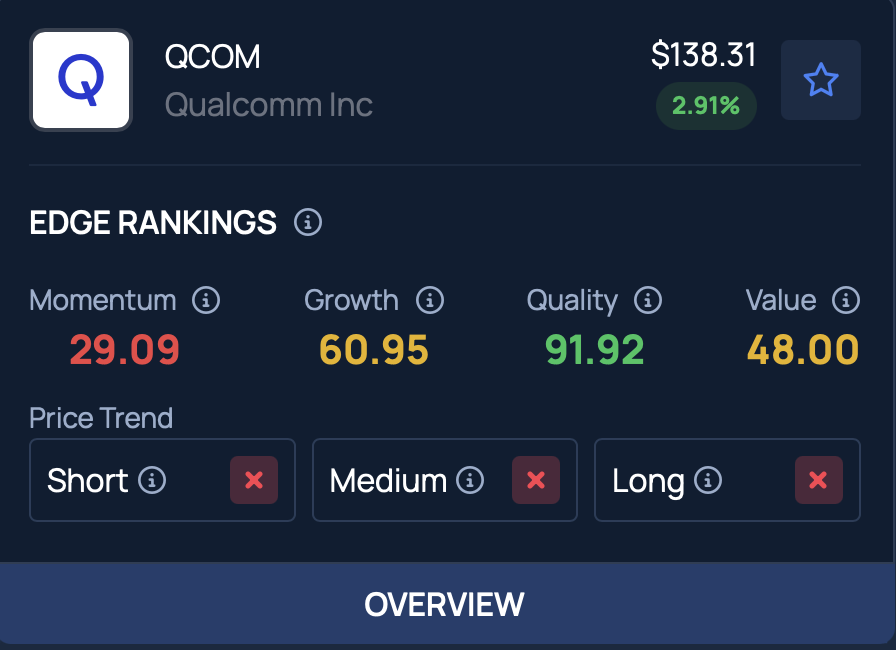
Next Steps:
Disclaimer: This content was partially produced with the help of AI tools and was reviewed and published by Benzinga editors.
Photo courtesy: Shutterstock
Market News and Data brought to you by Benzinga APIs


